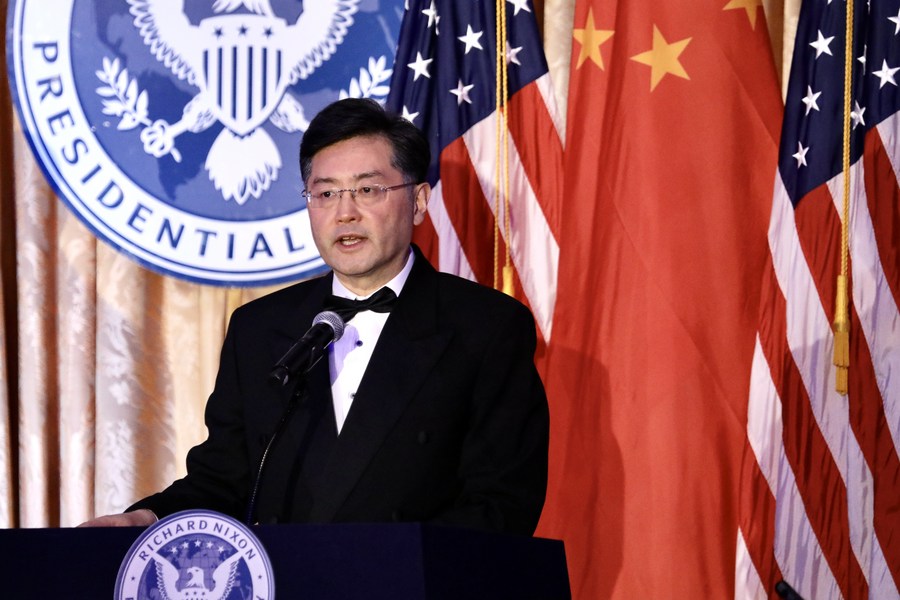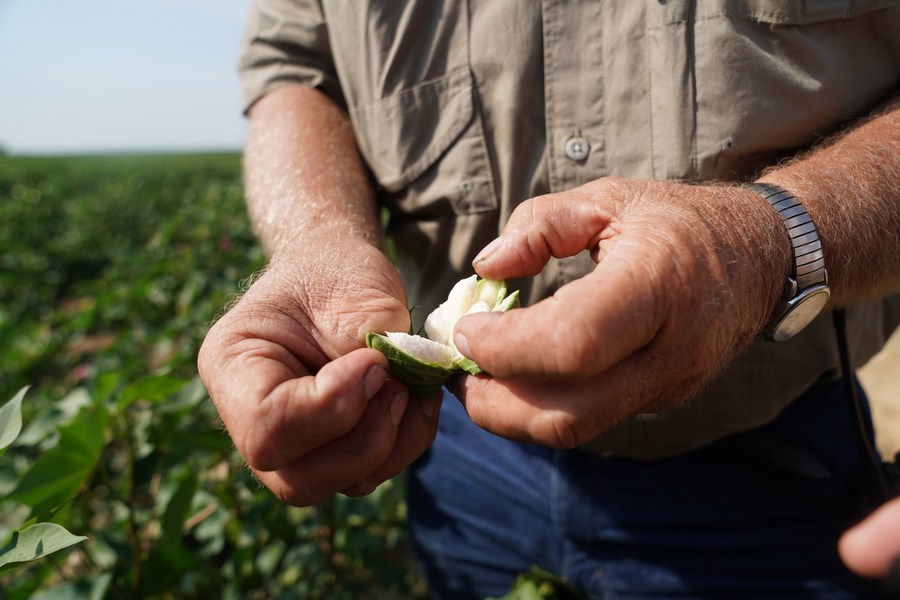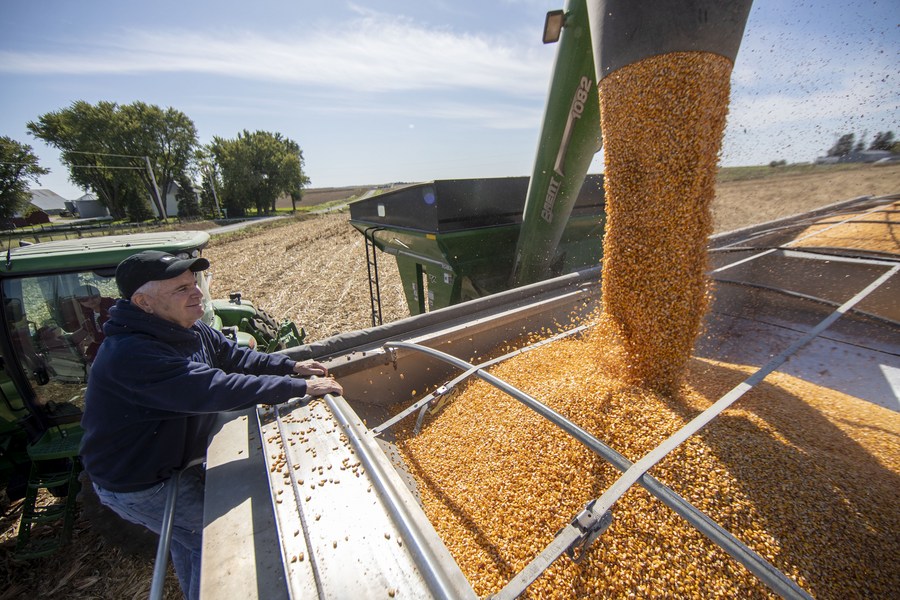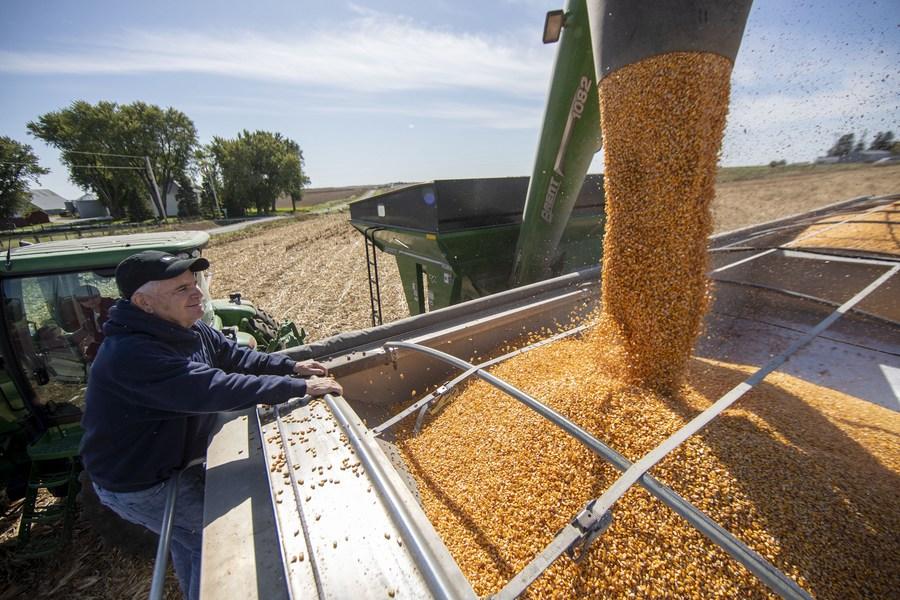
Chinese Ambassador to the United States Qin Gang addresses an event to commemorate the 50th anniversary of former U.S. President Richard Nixon's visit to China, in Yorba Linda, the United States, Feb. 24, 2022. (Xinhua)
"As we face a complex and severe situation in agricultural development and food security worldwide, I firmly believe that China and the United States, as major agricultural producers, consumers and traders, should meet challenges together, maintain stable development of agriculture, enhance the resilience of agricultural supply chains, ensure food security domestically, and promote cooperation for international food security," said Chinese Ambassador to the United States Qin Gang.
CHICAGO, April 23 (Xinhua) -- China-U.S. economic and trade relations are win-win in nature, and to restore normal trade ties between the two countries as soon as possible is the shared aspiration of both sides, said Chinese Ambassador to the United States Qin Gang on Thursday.
Qin made the comment at the 2022 China-U.S. High-level Agricultural Dialogue held in Des Moines, capital of U.S. state of Iowa.
He is visiting the U.S. Midwest states of Illinois, Iowa and Minnesota, and Des Moines is his second leg in Iowa.
China-U.S. agricultural cooperation carries special significance, Qin said. "With the resurging pandemic, fragile global recovery, faster climate change and growing regional conflicts, food security has again become a major practical issue facing China, the U.S. and the rest of the world."
Talking about what he has seen and heard in the U.S. "golden corn belt," Qin said he has come to understand that U.S. agriculture is going through a low-carbon and green transition, where farmers apply advanced technologies and methods for carbon capture and storage, and use quality feeds to reduce methane emission.

Cotton farmer Joe Boddiford shows a cotton boll at his farm in Sylvania, Georgia, the United States, on Aug. 1, 2019. (Xinhua/Liu Jie)
China has set the targets of reaching a carbon peak before 2030 and carbon neutrality before 2060, which will definitely create new opportunities for China-U.S. agricultural cooperation, he added.
Qin said China has made tremendous efforts to fully implement the phase-one trade deal in the past two years. "Despite the pandemic, we have not used the force majeure clause, and have even adopted a market-based exclusion process for the countermeasure tariffs on U.S. soybeans, grains, meat, aquatic products and fruits. This fully shows our sincerity and goodwill," he said.
As China implemented the phase-one trade deal, U.S. farmers have exported billions of dollars more in oilseeds and grains and over a billion dollars more in meat products, which has improved the well-being of farmers in America's heartland, said Qin, citing the U.S. Export Report 2022 recently issued by the U.S.-China Business Council.
Meanwhile, the growth in these exports provides thousands of new jobs to more than a dozen U.S. congressional districts, he added.

Farm owner Bill Pellett watches as harvested corn is loaded into a truck in a field of Pellett family's farm in Atlantic, a small city in Iowa, the United States, Oct. 14, 2019. (Xinhua/Wang Ying)
"As we face a complex and severe situation in agricultural development and food security worldwide, I firmly believe that China and the United States, as major agricultural producers, consumers and traders, should meet challenges together, maintain stable development of agriculture, enhance the resilience of agricultural supply chains, ensure food security domestically, and promote cooperation for international food security," said the ambassador.
The 2022 China-U.S. High-level Agricultural Dialogue was jointly sponsored by the Chinese Embassy in the United States, the U.S. Heartland China Association and the China Agricultural Association for International Exchange, and attended by more than 500 agricultural officials and agricultural association and enterprise leaders from China and the United States in person or online.




 A single purchase
A single purchase









